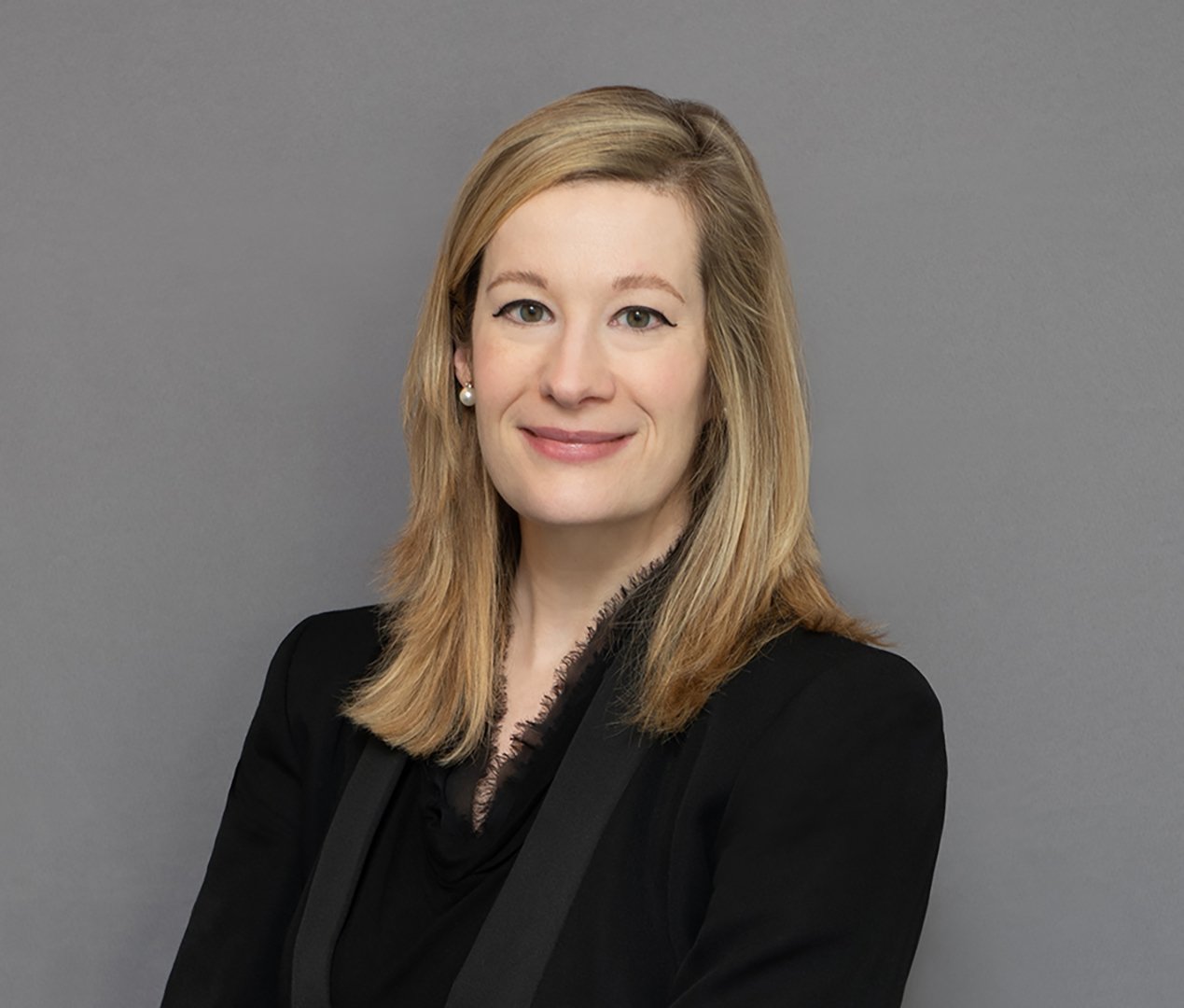Prenatal Testing Foes Finally Ready to Rumble in SF Patent Trial
Ariosa Diagnostics and Illumina Inc. are going to trial Monday in U.S. District Judge Susan Illston's San Francisco courtroom in a dispute over hundreds of millions of dollars and the IP used in non-invasive prenatal testing.
January 04, 2018 at 06:34 PM
7 minute read

They've fought at the Federal Circuit five times. They've crossed swords at the Patent Trial and Appeal Board at least five more.
Finally, after five years of bobbing and weaving, Ariosa Diagnostics Inc. and Illumina Inc. are going to trial Monday in U.S. District Judge Susan Illston of the Northern District of California's courtroom. At stake in the patent infringement and licensing dispute are potentially hundreds of millions of dollars and the fate of Ariosa's Harmony Prenatal Test. Both sides are backed by high-profile IP litigation teams: Irell & Manella for Ariosa and Weil, Gotshal & Manges for Illumina.
San Diego-based Illumina Inc. says its DNA sequencing and IP power all of the major lab testing companies that perform non-invasive prenatal testing (NIPT)—screening for genetic defects by analyzing blood rather than amniotic fluid. The exception is Ariosa, which Illumina accuses of free riding on its intellectual property, then undercutting its business partners by offering the Harmony test at “lowball” prices.
Backed by Weil partners Edward Reines and Derek Walter, Illumina is asking for $100 million in damages—trebled to $300 million for willful infringement—and an injunction shutting down Ariosa's Harmony test. “Through its low-ball pricing practices—which continue today—Ariosa has caused long-term harm to Illumina, its many partners, and the NIPT market as a whole,” Illumina alleges in a pretrial statement signed by Reines.
San Jose-based Ariosa was until recently a customer of Illumina's too. Ariosa says their supply agreement included a license to Illumina's IP. But once Illumina acquired Ariosa competitor Verinata Health in 2013, the relationship turned south. Illumina breached the agreement in bad faith, Ariosa says, by suing notwithstanding the license, and timing the suit to disrupt Ariosa's planned IPO. Instead, the company was acquired by Roche Molecular Systems Inc. in 2014.
Ariosa also is seeking $100 million, and the freedom to continue marketing a prenatal test it describes as far less expensive and more accessible than the Illumina-based options. Ariosa is represented by an Irell & Manella team led by partners David Gindler, Alan Heinrich and Lisa Glasser and counsel Sandra Haberny. “Illumina abused its position as Ariosa's sole source supplier in an attempt to extract unjustified 'licensing' fees for patents that Ariosa does not infringe or need,” Gindler writes in his part of the pretrial statement.
The market for non-invasive prenatal tests is less than seven years old, but it's already estimated to be worth more than $1 billion and still growing rapidly. So naturally it's already generated waves of IP litigation. Gindler and Ariosa were at the center of it in 2015, winning a groundbreaking decision at the U.S. Court of Appeals for the Federal Circuit that a patent held by competitor Sequenom was ineligible for patent protection.
Ariosa has had less success trying to invalidate the DNA sequencing patents that Illumina says undergird the Harmony test. The Patent Trial and Appeal Board has turned back at least five administrative challenges to the two patents at issue in the trial, though Illston is letting Ariosa try again with different prior art.
The case could come down to whether Illumina has already granted Ariosa a license to the same patents it's now asserting. Illston is leaving that decision to the jury.
Ariosa began operations in 2010. Co-founder John Stuelpnagel and Chief Scientific Officer Arnold Oliphant had worked previously at Illumina, and helped persuade Illumina to invest in Ariosa. As part of the process Ariosa shared confidential information about how the Harmony test works, including details about the DNA screening process that's now in dispute, Ariosa says. The two companies struck a $17 million deal in 2012 for Illumina to be its exclusive supplier of DNA sequencing equipment and the reagents used in the process. The supply agreement doesn't refer to any specific patents, but it grants Ariosa the “core” intellectual property rights “that pertain to the goods.” Ariosa argues that includes any patents necessary to perform the tests.
Ariosa says everything went fine until Illumina acquired Verinata Health, maker of the competing Verifi Prenatal Test, in 2013. By the next year, Illumina was accusing Ariosa of breaching the supply agreement by screening not only for genetic defects but also for sex determination. Gindler calls this a “pretextual” claim that Illumina tried to use to leverage “exorbitant and unjustified additional 'test' fees.”
This came at a delicate time for Ariosa, which was gearing up to raise $50 million to $60 million in an IPO. On April 24, 2014, the day the company announced the IPO pricing and executives gathered for a “roadshow,” word came that Illumina was refusing further negotiations and that it would soon terminate the supply agreement. Illumina filed its patent infringement suit the next day. The IPO was canceled.
“Illumina's actions were in bad faith, and caused Ariosa to abandon its IPO and lose significant amounts of money in the process,” Gindler writes.
Illumina sees it differently. In 2012, it says, four different companies—Ariosa, Sequenom, Verinata and Natera—were offering competing testing services. That caused confusion over the ownership of intellectual property, leading, for example, to the Ariosa-Sequenom litigation. Illumina says it sought to “consolidate the IP” in order to “grow the market for NIPT and make it more readily available to pregnant women.”
Illumina acquired Verinata for $350 million, then entered into a patent pooling arrangement with Sequenom for $60 million. The strategy worked, Reines writes in his pretrial statement. “Illumina has entered into supply agreements with nearly every major laboratory testing company in the United States, including LabCorp and Quest Diagnostics, among others, to supply sequencing equipment, reagents, and licenses to perform NIPT.”
But Ariosa has refused to play ball, Illumina says. “Unlike essentially every other player in the industry, it has disregarded Illumina's and Verinata's patents and does not pay a test fee,” Reines writes.
Illumina contends that the Ariosa IPO was on the rocks before its patent suit. Verinata had filed a similar suit even before its acquisition by Illumina. By 2014, Illumina recognized that Stuelpnagel and Oliphant had “co-opted” foundational Illumina IP for analyzing hundreds of DNA sequence fragments at once. It's the same technology they helped develop while working at Illumina in early 2000s, Illumina says.
As for the supply agreement, Illumina says it contains no promise not to sue. The company says it held up its end of the bargain, continuing to supply Ariosa after filing suit until the agreement expired in 2015. The only IP license conceivably granted is “very limited” and confined to the specific goods supplied. “Other products not purchased from Illumina or products that Ariosa develops itself—such as the accused products in this litigation—are not covered,” Reines writes.
Following Illumina's suit, Ariosa redesigned Harmony to run on an DNA analysis platform supplied by Affymetrix. But Illumina says the new version still infringes, and is asking Illston to enjoin Ariosa from marketing the Harmony test.
On summary judgment, Illston suggested that Illumina is construing the supply agreement too narrowly.
“If Ariosa establishes that it had a license to the '794 patent under the agreement, then the filing of the patent infringement lawsuit may constitute a breach,” she wrote. “The agreement explicitly contemplated Ariosa's ability to use the goods supplied by Illumina. Thus, Ariosa may argue that Illumina interfered with Ariosa's right to use the goods within the Customer Field of Use to support its breach of covenant claim.
“Whether Illumina did so,” Illston wrote, “is for the jury.”
This content has been archived. It is available through our partners, LexisNexis® and Bloomberg Law.
To view this content, please continue to their sites.
Not a Lexis Subscriber?
Subscribe Now
Not a Bloomberg Law Subscriber?
Subscribe Now
NOT FOR REPRINT
© 2025 ALM Global, LLC, All Rights Reserved. Request academic re-use from www.copyright.com. All other uses, submit a request to [email protected]. For more information visit Asset & Logo Licensing.
You Might Like
View All

Lawyers Across Political Spectrum Launch Public Interest Team to Litigate Against Antisemitism
4 minute read
Jones Day Names New Practice Leaders for Antitrust, Business and Tort Litigation and Latin America

Supreme Court Denies Trump's Request to Pause Pending Environmental Cases
Trending Stories
- 1States Accuse Trump of Thwarting Court's Funding Restoration Order
- 2Microsoft Becomes Latest Tech Company to Face Claims of Stealing Marketing Commissions From Influencers
- 3Coral Gables Attorney Busted for Stalking Lawyer
- 4Trump's DOJ Delays Releasing Jan. 6 FBI Agents List Under Consent Order
- 5Securities Report Says That 2024 Settlements Passed a Total of $5.2B
Who Got The Work
J. Brugh Lower of Gibbons has entered an appearance for industrial equipment supplier Devco Corporation in a pending trademark infringement lawsuit. The suit, accusing the defendant of selling knock-off Graco products, was filed Dec. 18 in New Jersey District Court by Rivkin Radler on behalf of Graco Inc. and Graco Minnesota. The case, assigned to U.S. District Judge Zahid N. Quraishi, is 3:24-cv-11294, Graco Inc. et al v. Devco Corporation.
Who Got The Work
Rebecca Maller-Stein and Kent A. Yalowitz of Arnold & Porter Kaye Scholer have entered their appearances for Hanaco Venture Capital and its executives, Lior Prosor and David Frankel, in a pending securities lawsuit. The action, filed on Dec. 24 in New York Southern District Court by Zell, Aron & Co. on behalf of Goldeneye Advisors, accuses the defendants of negligently and fraudulently managing the plaintiff's $1 million investment. The case, assigned to U.S. District Judge Vernon S. Broderick, is 1:24-cv-09918, Goldeneye Advisors, LLC v. Hanaco Venture Capital, Ltd. et al.
Who Got The Work
Attorneys from A&O Shearman has stepped in as defense counsel for Toronto-Dominion Bank and other defendants in a pending securities class action. The suit, filed Dec. 11 in New York Southern District Court by Bleichmar Fonti & Auld, accuses the defendants of concealing the bank's 'pervasive' deficiencies in regards to its compliance with the Bank Secrecy Act and the quality of its anti-money laundering controls. The case, assigned to U.S. District Judge Arun Subramanian, is 1:24-cv-09445, Gonzalez v. The Toronto-Dominion Bank et al.
Who Got The Work
Crown Castle International, a Pennsylvania company providing shared communications infrastructure, has turned to Luke D. Wolf of Gordon Rees Scully Mansukhani to fend off a pending breach-of-contract lawsuit. The court action, filed Nov. 25 in Michigan Eastern District Court by Hooper Hathaway PC on behalf of The Town Residences LLC, accuses Crown Castle of failing to transfer approximately $30,000 in utility payments from T-Mobile in breach of a roof-top lease and assignment agreement. The case, assigned to U.S. District Judge Susan K. Declercq, is 2:24-cv-13131, The Town Residences LLC v. T-Mobile US, Inc. et al.
Who Got The Work
Wilfred P. Coronato and Daniel M. Schwartz of McCarter & English have stepped in as defense counsel to Electrolux Home Products Inc. in a pending product liability lawsuit. The court action, filed Nov. 26 in New York Eastern District Court by Poulos Lopiccolo PC and Nagel Rice LLP on behalf of David Stern, alleges that the defendant's refrigerators’ drawers and shelving repeatedly break and fall apart within months after purchase. The case, assigned to U.S. District Judge Joan M. Azrack, is 2:24-cv-08204, Stern v. Electrolux Home Products, Inc.
Featured Firms
Law Offices of Gary Martin Hays & Associates, P.C.
(470) 294-1674
Law Offices of Mark E. Salomone
(857) 444-6468
Smith & Hassler
(713) 739-1250






